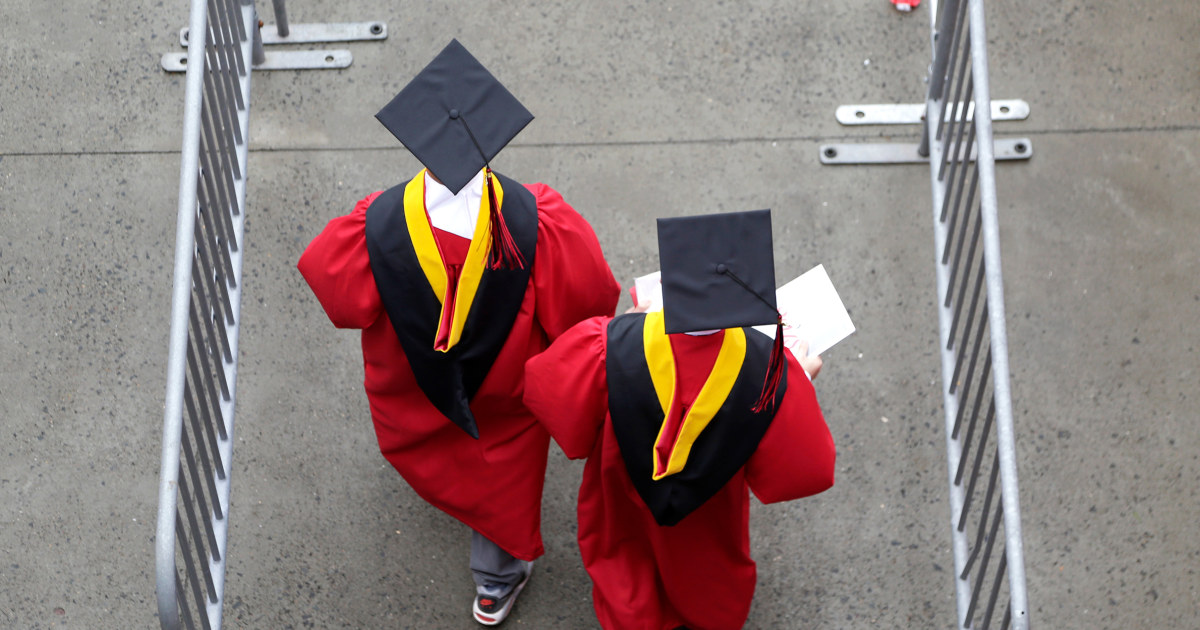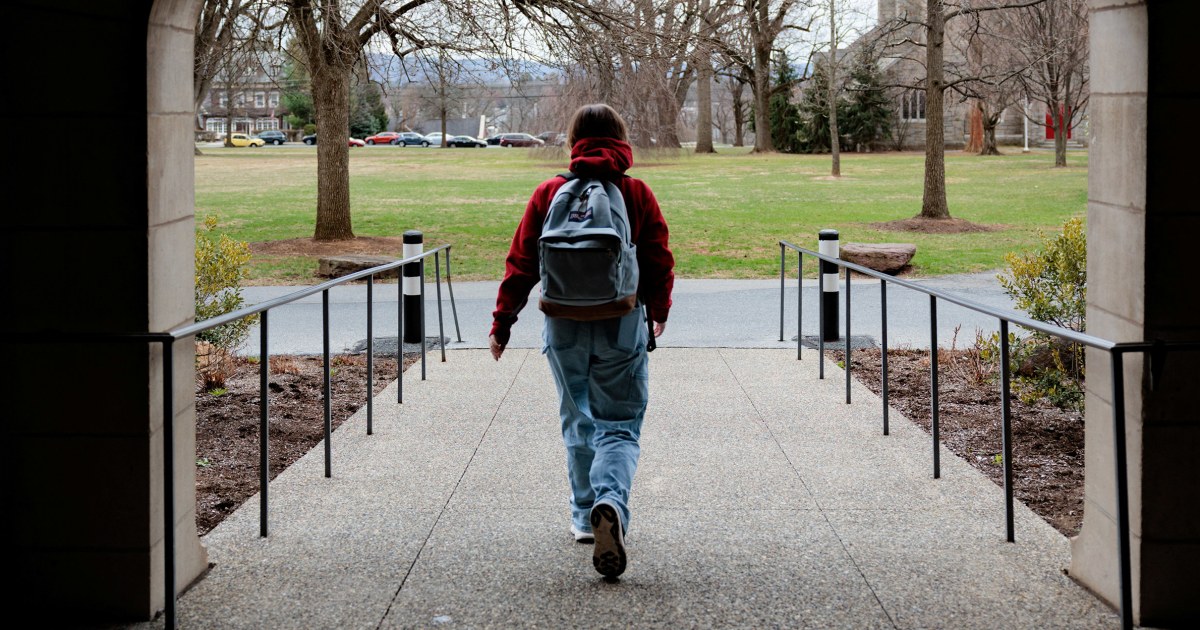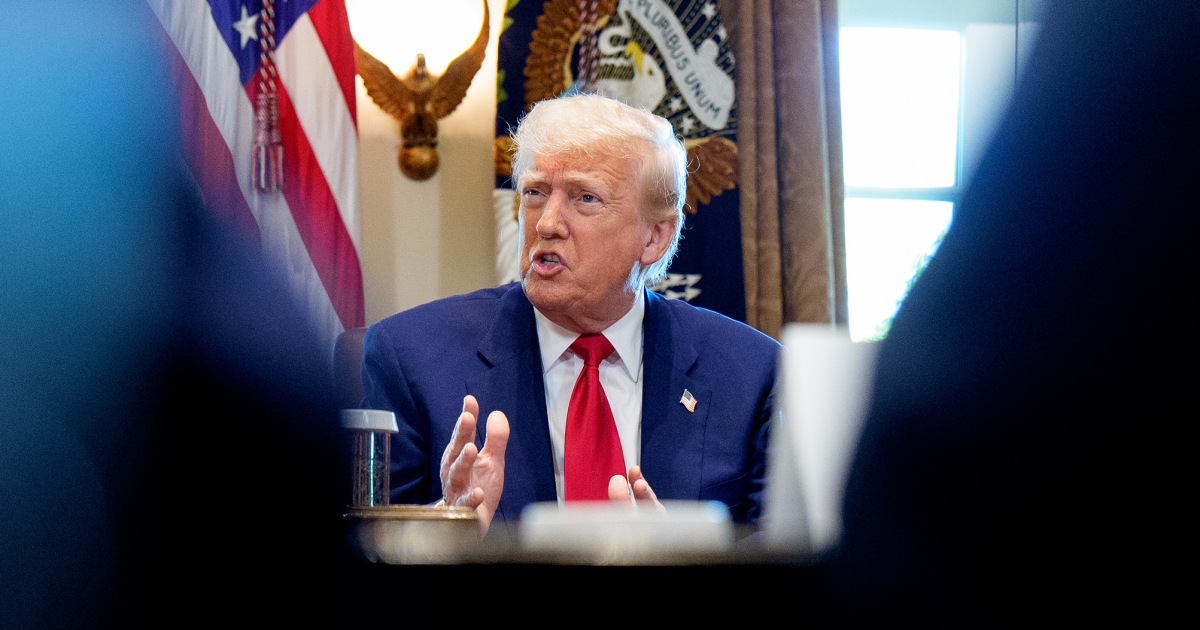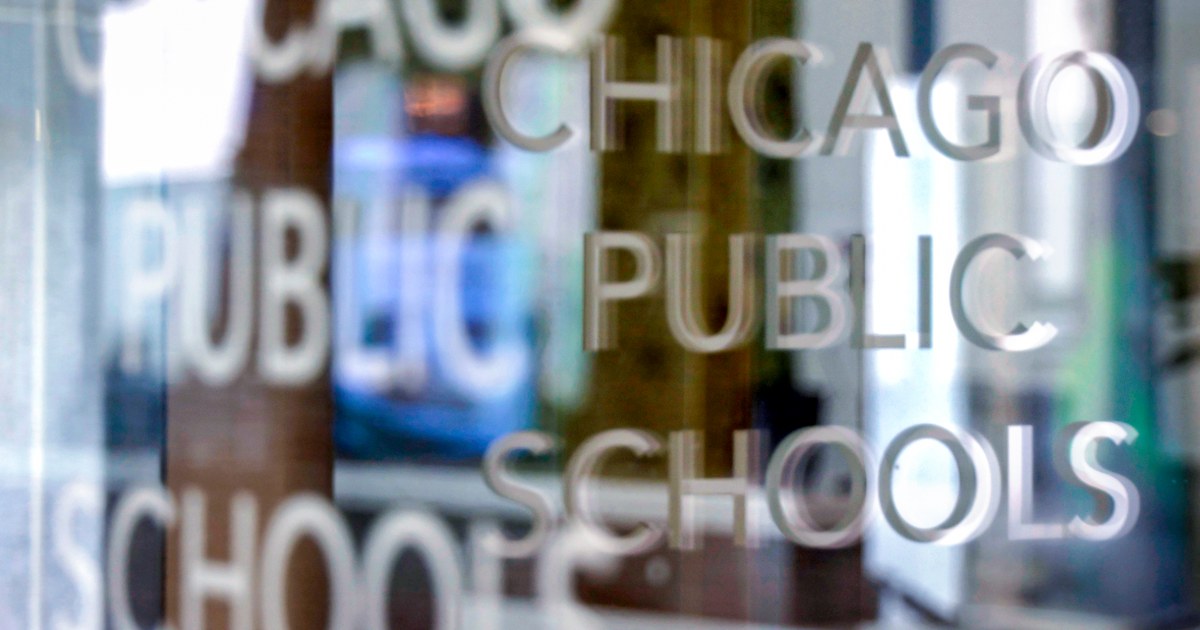Education
New college grads face a tougher job market — again

This year’s new college graduates are heading into a tougher job market than last year’s — who had it worse off than the class before that — just as the Trump administration cracks down on student loan repayments.
Recent grads’ unemployment rate was 5.8% as of March, up from 4.6% a year earlier, the Federal Reserve Bank of New York reported last week. The share of new graduates working jobs that don’t require their degrees — a situation known as “underemployment” — hit 41.2% in March, rising from 40.6% that same month in 2024.
“Right now things are pretty frozen,” Allison Shrivastava, an economist at Indeed Hiring Lab, said of entry-level prospects. “A lot of employers and job seekers are both kind of deer-in-headlights, not sure what to do.”
Employers and job seekers are both kind of deer-in-headlights, not sure what to do.
Allison Shrivastava, economist, Indeed Hiring Lab
That squares with Julia Abbott’s experience.
“I just feel pretty screwed as it is right now,” said the psychology major who’s graduating this month from James Madison University in Harrisonburg, Virginia. She said she’s applied to over 200 roles in social media and marketing, but “minimal interviews come out of it.”
Internship postings typically rise sharply in early spring, but they’re lagging 11 percentage points behind last year’s levels, Indeed said in April. The hiring platform sees demand for interns as a stronger gauge of new grads’ job prospects than entry-level postings, which increasingly target people with at least a few years’ experience.
In a worrying sign for the class of 2025, internship openings are “far below where they were in 2023 and 2022, when the labor market was exceptionally competitive,” Shrivastava said.
Young college grads have historically seen lower unemployment levels than the labor force overall, and they still do. But as The Atlantic pointed out Wednesday, this gap has narrowed to a record low, taking some of the shine off the traditional benefits of a bachelor’s degree.
Meanwhile, the Trump administration is restarting the “involuntary” repayment of federal student loans in default, a move that could sap money from paychecks, tax refunds, Social Security payments and disability and retirement benefits from millions of borrowers.
Repayments were paused during President Donald Trump’s first term in 2020 in response to Covid-19. The pandemic-era reprieve from forced collections ends Monday, just as a new TransUnion report finds a record share of federal student loan borrowers are 90 days or more past due and at risk of default — at 20.5% as of February, up 10 percentage points from five years earlier.
The debt crackdown comes as workers across the labor force confront a tougher hiring landscape. Employers added a better-than-expected 177,000 jobs in April, government data showed Friday, but analysts were quick to flag warning signs ahead.
Average pay growth has slowed to a crawl, and unemployment metrics indicate it’s taking longer for people looking for work to secure it. While the latest jobs numbers point to a “resilient” labor market, “we should curb our enthusiasm going forward given the backdrop of trade policies that will likely be a drag on the economy,” Olu Sonola, head of U.S. economic research at Fitch Ratings, said in a statement Friday. “The outlook remains very uncertain.”
The murky jobs forecast coincides with broader economic turbulence fueled by Trump’s ongoing trade war.
A slew of major companies have warned about tariff impacts in recent days. All but the wealthiest households are tightening their budgets, and consumer outlooks plunged to a 13-year low in a closely watched Conference Board survey released Tuesday. Some of the spending that is taking place reflects shoppers and businesses racing to make purchases before tariffs drive up costs for everything from cars to frozen fish and fireworks.
These headwinds are making many employers increasingly cautious about hiring young graduates.
Employers have pulled back plans to hire more new grads over just the last six months, according to a February and March survey by the National Association of Colleges and Employers, which polled major companies including Chevron, PepsiCo and Southwest Airlines. While most said their new-grad recruitment plans are holding steady, the share of respondents planning to expand entry-level hiring dipped to 24.6% this spring. That’s down from 27% last fall and the lowest rate since autumn 2020, during the depths of the pandemic.
In March, NACE released salary projections showing a mixed picture for the class of 2025, with social sciences graduates set to see a 3.6% drop in pay since last year, while agriculture and natural resources majors were on track for a 2.8% bump over their ’24 predecessors. The estimates, however, were based on employer survey data from last fall, weeks before Trump took office.
“I’m not surprised that new hiring is being restricted,” said Andy West, a senior partner at the consulting firm McKinsey who advises CEOs on corporate strategy and finance. He said some clients are increasingly discussing ways to “reallocate resources” amid tariffs and other macroeconomic worries, he said. As employers hunt for cost cuts and stability, many tend to zero in on expenses that fluctuate over time, including payrolls.
It just feels really scary, like walking into this world and not having something set out for me.
Julia Abbott, James Madison University, class of 2025
“When it comes to hiring and talent, often these are very short-term decisions around slowing down,” he said.
Class of ’25 job seekers are adjusting their expectations to the tighter market.
More than half have ditched the “dream job” plans they entered college with, according to a February survey by the grads-focused hiring platform Handshake. And 56% of current seniors are somewhat or very pessimistic about launching into the workforce right now. That’s about the same share as last year, but outlooks are down more sharply in fields like computer science, where over a quarter of seniors with that major voiced extreme pessimism.
Anxiety around landing a first full-time job is common among college students, but the deep uncertainty this year threatens to put a damper on commencement season.
“I can’t really celebrate my past four years,” said Abbott, the JMU senior. “It just feels really scary, like walking into this world and not having something set out for me.”
Education
Here’s what you need to know

The federal government on Monday will resume collecting defaulted student loan payments from millions of people for the first time since the start of the pandemic, officials said.
The Trump administration said it would collect the debt through a Treasury Department program that withholds payments through tax refunds, wages and government benefits.
The U.S. Education Department has not collected on defaulted loans since March 2020. Of the nearly 43 million people who owe money, only a little more than a third have made regular payments, the agency said.
In the last five years, student debt has grown to $1.6 trillion, officials said. Education Secretary Linda McMahon said taxpayers would now be saved from shouldering that cost.
“American taxpayers will no longer be forced to serve as collateral for irresponsible student loan policies,” McMahon said in an April 21 news release announcing the restart of collections.
The move comes after years of legal back-and-forth about loan forgiveness and at a time when advocates say student borrowers are stretched thin from inflation and growing concerns over the cost of living.
“We’re in the worst student loan landscape that we’ve ever been before,” said Sabrina Calazans, executive director of the Student Debt Crisis Center, a nonprofit that advocates for student debt cancellation.
“The plans and proposals being put forth by the Trump administration are going to harm millions of individuals and families,” Calazans added. “It’s going to create a financial catastrophe where folks will not be able to meet their basic needs.”
What happens now?
All borrowers in default should have received an email from the Office of Federal Student Aid alerting them to the changes.
Officials said the email urges borrowers to contact the Default Resolution Group to either make a monthly payment, enroll in an income-based repayment plan or sign up for loan rehabilitation — a process that can erase a default status if the borrower makes a set of payments during a specific time frame, depending on the type of loan.
To schedule monthly payments, borrowers who have not changed their marital status or income would have needed to send their most recent Federal 1040 tax return to the Education Department, according to instructions outlined on the Default Resolution Group’s website.
The Education Department said it will be using the Treasury Department’s Offset Program to collect on the debt by withholding payments through tax refunds, salaries and benefits like Social Security payments.
Under the program, the government can withhold entire federal tax refunds and up to 15% of a federal worker’s disposable pay. The government said the FSA would send notices about wage garnishment later this summer.
In an April opinion piece published in The Wall Street Journal, McMahon said borrowers who don’t make payments on time will see their credit scores go down, “and in some cases their wages automatically garnished.”
What happened to loan forgiveness?
Before leaving the White House in January, then-President Joe Biden announced his administration had canceled student debt for more than 5 million people, including many who attended schools that defrauded students, like DeVry University, as well as public service workers and those with total and permanent disabilities.
“Since Day One of my Administration, I promised to ensure higher-education is a ticket to the middle class, not a barrier to opportunity, and I’m proud to say we have forgiven more student loan debt than any other administration in history,” Biden said in a statement at the time.
In its April news release, however, Trump’s Education Department made it clear that “there will not be any mass loan forgiveness” going forward.
McMahon blamed the Biden administration for transferring hundreds of billions of dollars in debt to taxpayers and keeping borrowers in a “confusing limbo” about payments.
“The executive branch does not have the constitutional authority to wipe debt away, nor do the loan balances simply disappear,” she said.
Trump paused collection on most federal student loans in March 2020, and Biden continued to pause collection when he took office in 2021.
Biden had proposed allowing eligible borrowers to cancel up to $20,000 in debt until the U.S. Supreme Court ruled against his student loan debt relief plan in 2023. The plan would have cost more than $400 billion, and about 43 million Americans would have been eligible to participate.
In the Wall Street Journal op-ed, McMahon said Biden “never had the authority to forgive student loans across the board.”
She said resuming collections was not an act of unkindness to student borrowers but an act of fairness.
“Borrowing money and failing to pay it back isn’t a victimless offense. Debt doesn’t go away; it gets transferred to others,” she said. “If borrowers don’t pay their debts to the government, taxpayers do.”
Education
Trump says he will revoke Harvard’s tax-exempt status

President Donald Trump said Friday that he will revoke Harvard University’s tax-exempt status, the latest move in the escalating clash between the administration and the Ivy League school.
“We are going to be taking away Harvard’s Tax Exempt Status. It’s what they deserve!” Trump wrote in a post on Truth Social.
The president had previously suggested the university should lose its tax-exempt status. His latest statement came after Harvard sued the administration over its decision to freeze more than $2 billion in funding to the Ivy League school. The administration claimed the university was refusing to follow the administration’s demands that it take actions aimed at ending antisemitism on campus.
“Perhaps Harvard should lose its Tax Exempt Status and be Taxed as a Political Entity if it keeps pushing political, ideological, and terrorist inspired/supporting ‘Sickness?’” Trump threatened in a Truth Social post last month. He added, “Remember, Tax Exempt Status is totally contingent on acting in the PUBLIC INTEREST!”
Responding to Trump’s announcement Friday, Harvard spokesperson Jason Newton said that the government has “long exempted universities from taxes in order to support their educational mission” and that there was no legal basis to rescind its status.
“The tax exemption means that more of every dollar can go toward scholarships for students, lifesaving and life-enhancing medical research, and technological advancements that drive economic growth,” he said.
Newton added that revoking the university’s tax-exempt status “would endanger our ability to carry out our educational mission.”
“It would result in diminished financial aid for students, abandonment of critical medical research programs, and lost opportunities for innovation,” he continued. “The unlawful use of this instrument more broadly would have grave consequences for the future of higher education in America.”
In its lawsuit, Harvard accused the Trump administration of violating the First Amendment and other laws and regulations after it paused $2.2 billion in grants. The school called on a federal judge to declare the move unconstitutional and order the government to reinstate the funding.
The federal government froze funding to Harvard after the school said it wouldn’t comply with “critical reforms” called for by the Trump administration. Some of those changes included a demand for the discontinuation of diversity, equity and inclusion programs as well as reforms to programs “with egregious records of antisemitism or other bias.”
Harvard President Alan Garber told NBC News’ Lester Holt last week that the research funded by the federal grants is unrelated to antisemitism, which the school said in its lawsuit it has taken steps to address on its campus since Hamas’ Oct. 7 attack on Israel.
“Putting that research at jeopardy because of claims of antisemitism seems to us to be misguided,” Garber said. “The effort to address antisemitism will not be advanced by shutting off funding.”
Tax-exempt nonprofit groups, known as 501(c)(3) organizations, are prohibited from participating in certain political activities, according to the Internal Revenue Service. “Violating this prohibition may result in denial or revocation of tax-exempt status and the imposition of certain excise taxes,” the agency’s website says.
Soon after Trump’s Truth Social post, Senate Minority Leader Chuck Schumer, D-N.Y., and a group of other Senate Democrats sent a letter to the acting Treasury inspector general for tax administration requesting an investigation into the president’s targeting of Harvard’s tax-exempt status.
“It is both illegal and unconstitutional for the IRS to take direction from the President to target schools, hospitals, churches, or any other tax-exempt entities as retribution for using their free speech rights,” they wrote the official, Heather Hill.
They added, “We request that you review whether the President or his allies have taken any step to direct or pressure the IRS to take politically-motivated actions regarding the tax exempt status of the President’s political targets.”
Education
Education Department opens investigation into Chicago Public Schools

The U.S. Education Department is investigating Chicago Public Schools amid allegations that a new program designed to improve academic success and retention among Black students and educators violates federal law.
The investigation announced Tuesday is based on a February complaint by the nonprofit Parents Defending Education, now known as Defending Education, which alleged the school system’s academic-achievement initiative for Black students racially discriminates against students, violating Title VI of the Civil Rights Act.
The investigation appears to be the first time since President Donald Trump took office in January that the department has investigated a public school system for instituting a racially based program.
The school district is the fourth-largest in the nation with 321,000 students, of which 35% were Black in the 2023-2024 academic school year.
Acting Assistant Secretary for Civil Rights Craig Trainor said Chicago Public Schools sought through the Black Student Success Plan to allocate resources favoring students based on race.
“Chicago Public Schools have a record of academic failure, leaving students from all backgrounds and races struggling and ill-prepared to meet the challenges and enjoy the rewards of contemporary American life,” Trainor said in a statement.
Title VI prohibits discrimination based on race, color or national origin in education programs receiving federal funding. Schools found in violation of the act can lose federal funds, the department said.
“Chicago Public Schools does not comment on pending or ongoing litigation,” the school system said Wednesday.
School officials said the Black Student Success Plan was designed to ensure students had an equitable learning experience.
The school system announced the Black Student Success Plan during Black History Month in February, saying it aimed to improve academic achievement and to recruit and retain educators and leaders.
“The District is committed to removing these obstacles and calls upon the community to support efforts to better serve Black students,” Chicago Public Schools Chief Education Officer Bogdana Chkoumbova said when the initiative was made public.
Defending Education said in its complaint that “members oppose discrimination on the basis of race and political indoctrination in America’s schools” and called the plan “racially exclusive.”
The organization could not be reached for comment Wednesday.
The plan was scheduled to start this spring with the goal of shortening education gaps and fostering engagement with Black students and families, school officials said.
Chicago Teachers Union President Stacy Davis Gates said the investigation was an attempt to hinder progress in the school system.
“Rather than using the Department to create opportunities for students, Trump and (Education Secretary Linda E.) McMahon appear determined to transform it into a debt collection agency and a vehicle to dismantle the civil rights protections that support students and their families,” she said in a statement.
-

 Lifestyle2 days ago
Lifestyle2 days agoRain Barrel Village gives visitors a taste of old Florida and a photo op with a giant lobster
-

 Europe2 days ago
Europe2 days agoTrump draws criticism with AI image of himself as the pope ahead of the papal conclave
-

 Sports2 days ago
Sports2 days agoPeople close to the fan who fell onto field at PNC Park share positive update
-

 Middle East2 days ago
Middle East2 days agoCanelo Alvarez beats Scull to reclaim undisputed super-middleweight title | Boxing News
-

 Europe2 days ago
Europe2 days agoUkraine claims it destroyed Russian fighter jet using seaborne drone for the first time
-

 Sports2 days ago
Sports2 days agoRoger Clemens: Red Sox great watches son Kody hit Fenway Park home run – for the Minnesota Twins
-

 Europe2 days ago
Europe2 days agoVenice is sinking. Now there’s a radical plan to lift the entire city above rising floodwaters
-

 Europe1 day ago
Europe1 day agoFather of crypto entrepreneur rescued from kidnappers after having finger severed




